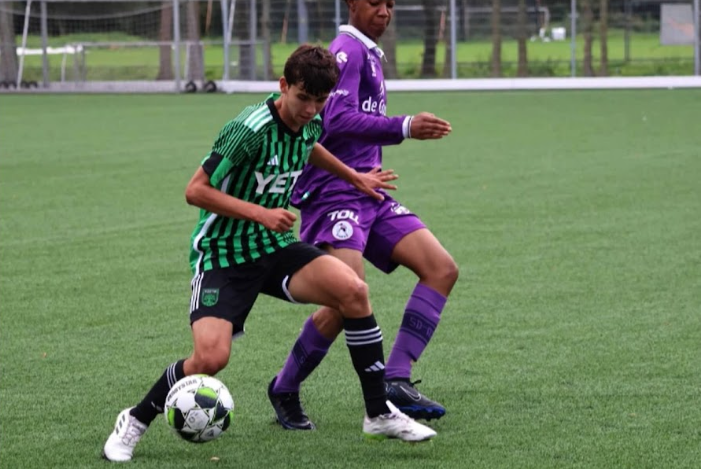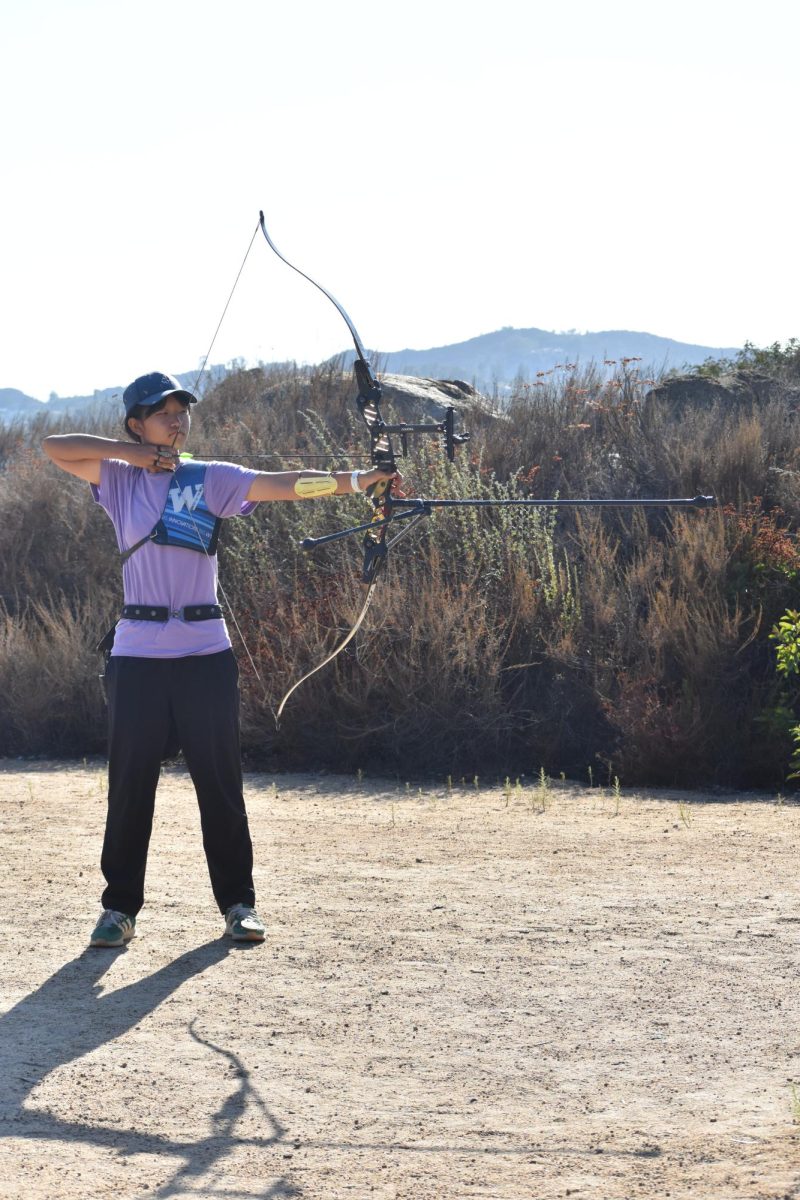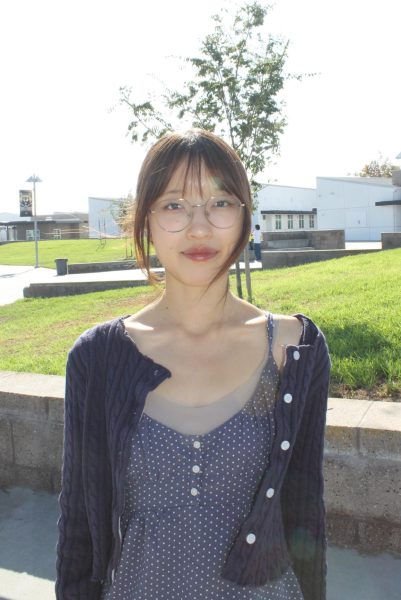Last May, Julian Wu (12) attended the annual 2025 USA Computing Olympiad (USACO) training camp at Clemson University, an experience reserved for the top 25 USACO students every year. Months before, he had competed in a five-hour contest, where he solved three intensive programming problems. In his junior year, out of 4,000 participants in the competition, he had earned the second highest score out of all pre-college participants.
“I completely did not expect it,” Wu said. “I was really surprised and also felt accomplished because I had a really small hope of getting in, but seeing it in front of me was really unreal.”
The USACO is one of the most prestigious high-school programming contests in the nation. It consists of a series of online programming contests, covering algorithmic programming and advanced data structures at the higher levels. It is designed to identify and nurture talented high-school students interested in computer science and algorithmic problem-solving.
The competition is divided into four divisions, from Bronze to Platinum, with each division introducing more concepts in increasing degrees of difficulty. Among 255 competitors in the Platinum division, 16-24 of the best-performing students are invited to participate in the USACO Training Camp. Out of these students, four are ultimately selected to compete in the International Olympiad for Informatics (IOI).
Wu attributed his talent in programming to his early exposure to computer science, spurred on by his older brother.
“I started in second grade with Khan Academy, making games there, and looking at other people’s projects and games,” he said. “From there, I learned to create my own projects. I’d make coding projects for school, and once I hit middle school, my brother introduced me to the Coding Olympiad because he was doing it at the time. I kind of got into that and switched to that route.”
Although his brother was his inspiration and mentor, mentoring him through the first few phases of USACO in middle school, Wu said he soon realized his own love for computer science, and took off on his own from there.
“Just being able to create whatever you want with the tips of your finger, that’s what I enjoy about it,” Wu said. “I feel like with most other fields, you’re not really making something concrete. With coding it’s easier to actually have a product.”
Wu said his background in Math Olympiad gave him a head start.
“I had some problem-solving foundations from Math Olympiad in middle school, but specifically for coding it was important to practice a lot — solving a lot of past problems to get more experience,” he said.
Wu said he had the most difficulty getting past the gold division at the end of eighth grade.
“When you get to the high divisions, you’ll have more advanced concepts within computer science, but apart from that there’s the problem-solving aspect,” he said. “The higher divisions have more steps and require more logical thinking. I got stuck around the gold level early on, but the only way to combat that was learning how to think better logically. It’s just repeating a lot of other problems and practice.”
Wu said that progressing past that stage required him to strategically revise his testing strategy.
“Mainly, it was reflection that helped me improve,” he said. “I’d go back and look at contests where I failed and analyze what I did wrong and what I could do better. One big part was understanding contest strategy. It applies to a lot of tests in general. If you know material but don’t have a strategy, that’s a weakness. In the Olympiad, it’s important to read all the problems first so you don’t get stuck on one and go down rabbit holes. It’s easy to get stuck on one wrong idea or code up a long program that doesn’t work. You have to keep your mind open.”
According to Wu, advancing divisions demanded a remarkable amount of time, practice, and perseverance.
“At its peak, during the summer, I practiced a lot,” he said. “I’d go through a bunch of practice contests. Contests are like five hours, so I’d do five to six hours a day in summer. During the school year, maybe an hour at night. There were times I didn’t see improvement at all for months, but I just kept practicing anyway. Once I got to Platinum, I knew how to break through those barriers and which direction to head down to improve more.”
Last May, Wu flew out to Clemson University to attend the USACO training camp along with the other top 25 people in the nation. The one-week camp separated students into two groups. Wu was in the group of the top 10 contenders, who competed in five competitions over the course of the week. From that group of 10, four students were selected for the USA National team, meant to compete in the IOI. The other 15 students attended the camp to learn and listen to lectures.
While Wu ultimately did not make the national team, he said that the experience was still a great one.
“[The top 10 group] is really supportive and cooperative and in general a really fun time,” he said. “They take you on a lot of other activities outside of the contests, but most of the time you’re doing CS-related activities.”
His days consisted of competitions, review, and time to relax.
“On [the five competition] days that would be the majority of the day because it would be like five hours,” Wu said. “So we would eat breakfast, go to our contest, then eat lunch and afterwards discuss the contest or go through it. At night we have lectures from guest speakers or a lot of excursions like mini golf, bowling, arcade, Six Flags.”
Going forward, Wu said he hopes to continue pursuing computer science, although his path isn’t yet set in stone.
“Honestly, I don’t know where I see myself,” he said. “I think the field of AI is really interesting. I’m planning to study computer science, but I also want to dabble in AI. ”
Wu said that while USACO was a great introduction to computer science, working in the actual field would require different skillsets. Nevertheless, he is proud of what he has accomplished.
“Olympiad is very different from the actual tech industry because of the style of problems, but I think I’m still going in the same route with the fundamentals,” Wu said. “Mainly, [I’m proud that] I just had a really big passion for something and I put a lot of effort into it. For Computer Olympiad specifically, just being able to solve something gave me a sense of accomplishment.”



![Valen Miao (9) [front] paddles in a dragon boat for Chinese Youth Dragon Boat, Sept. 13. Miao has been racing for one year.](https://wvnexus.org/wp-content/uploads/2025/09/Dragon-Boat-1200x491.jpg)

